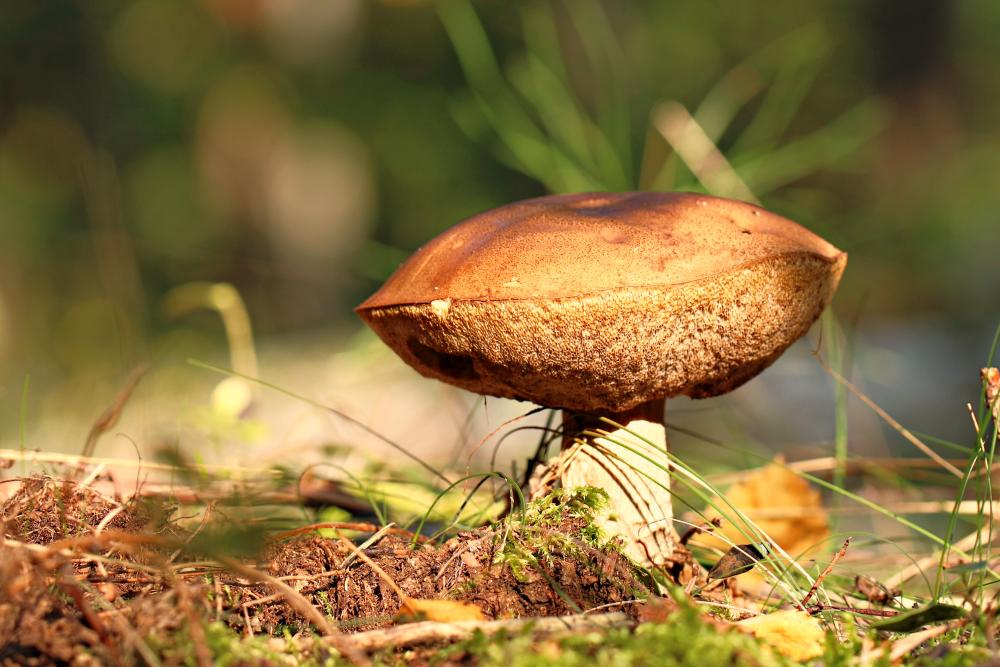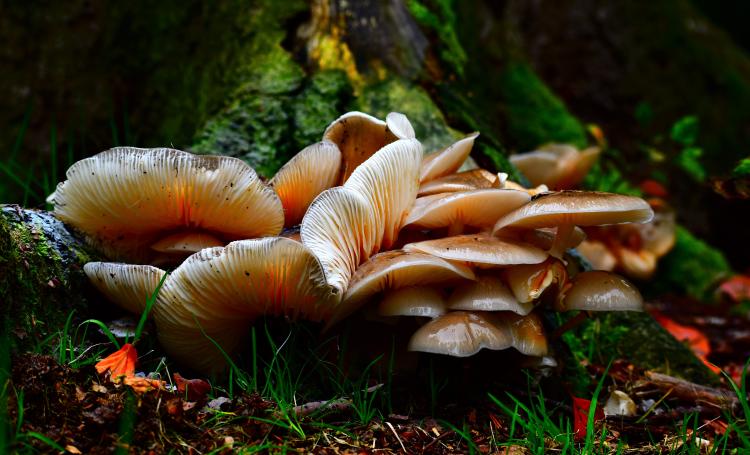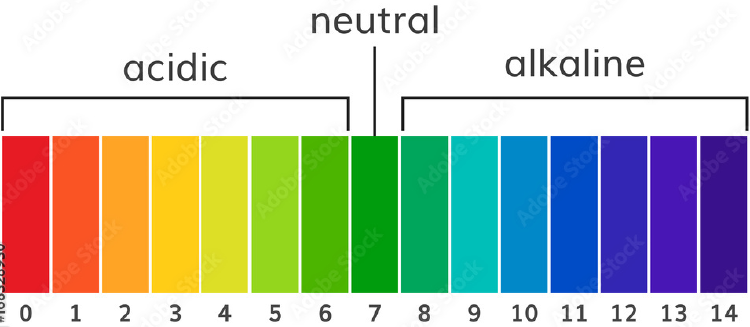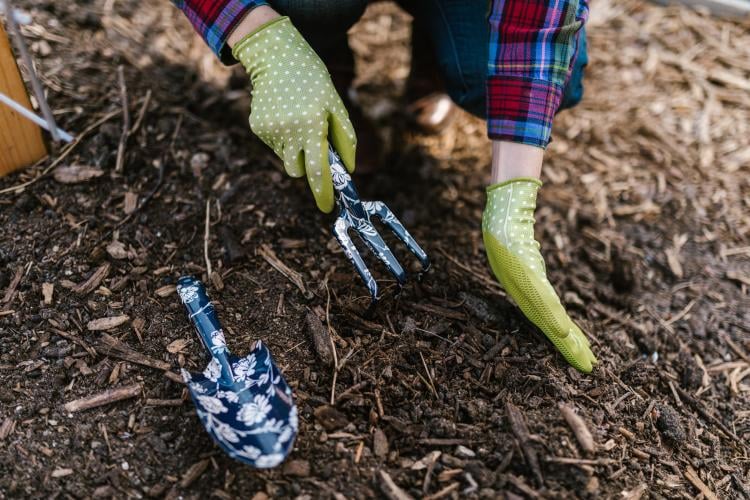
Decomposing kitchen waste is a great alternative for helping the world instead of continuously accumulating waste in garbage dumps. Apart from traditional compost with greens and browns, you can start doing mushroom compost at your garden. Don´t miss this article to discover What Can Be Composted? A Complete List of Things You Can Compost. Mushroom compost has incredible benefits that will upgrade the quality of your soil. Is mushroom compost acidic? Don't miss this article to know the answer! Find out here everything you need to know to become a mushroom compost expert.
Mushroom compost is obtained from the remaining of the mushrooms' harvest. Hence the name usually given to that type of compost: "spent mushroom compost". They are great conditioners for the soil that are dry and need to improve for future plants. As hair conditioners, mushrooms add multiple nutrients and moisture to soils. Find here the difference between fungi and mushrooms to have a better understanding of the topic: Mushrooms Growing In My Compost Bin? Good or Bad? Should I Worry?.
Another type of mushroom compost is the most available in the commerce known as "mushroom substrate". What´s that? It is the substrate on where mushrooms grow in. That substrate is made of corn cobs, straw, spent brewers grain and more organic materials. The process of taking the substrate out is easy: after farmers harvest the mushrooms they remove that substrate and replace it with a new one. It is important to mention that before taking the substrate out, they kill all the pathogens found. Now the substrate is ready to be used for compost :) It is good to know the different types of mushroom compost available to make a conscious decision.
Farmers explain that mushroom compost has high alkalinity levels, so it is a great way to neutralize all the acids in the soil.

The PH levels of your compost will basically determine the growth of your plants. Of course knowing the PH level of your soil is very important, but knowing the PH level of your compost will save you lots of problems :) To start with, the PH is a measure of the acidity or alkalinity expressed in a scale from one to fourteen. High values are alkaline, whereas low values are acid. What is the neutral PH level? The answer is 7! Plants will grow well in neutral PH level soils, but of course to keep the neutral level is not an easy task.
It is important to measure the PH level of your compost in different areas, because it will probably vary. The mushroom compost will be in different phases of decomposition so numbers will be different. Gardeners recommend blending mushrooms with the soil before seeding in the garden. The soil PH meter is the tool that most gardeners use to measure ph. You can easily find it online or at a garden store. Inserting the PH meter deep in the compost will give you exact results, then you go to the PH scale found below and you will know if your soil and compost are healthy or not.

Mushroom compost is alkaline! It is an excellent natural fertilizer for acid soils that have a low level of organic matter. That type of compost helps to neutralize the level of the acid soils, that is why it is a great solution for your garden. Once you know the pH level of your soil, you can determine if it is too acid or too alkaline. If the first option is the answer, then start doing mushroom compost to neutralize soil´s level. A study has been made to measure the PH level of mushroom compost of different mushroom farms and the result was 6.6 (below the neutral level in the PH scale).
That PH is excellent for most plants, they will obtain nutrients from the soil easily. Some of the plants that grow well in mushroom compost are the following:
The ericaceous plants love acid, hence they won´t survive in mushroom compost due to its alkalinity levels. Some of them are: azalea, blueberry, fern, gardenia, holly, Japanese maple and cranberries.
Pssssst.. don´t use mushroom compost if your soil is neutral! It will be excessively alkaline.
Mushroom compost has to be mixed with the soil and not simply throw it on top of it. You should grab a garden shovel to lift the earth up and then put some mushroom compost. Gardeners recommend doing it before planting, so that the soil can obtain the nutrients from the mushrooms and change its quality for the better. Mushroom compost is awesome for alkaline soils and it is mostly effective in vegetable gardens. Experts recommend applying 3-inch of mushroom compost in the soil and dig 6-inch to obtain great results :) There´s no need to add fertilizers after planting, just remember to water your plants and measure the PH level of the soil regularly.
As we discussed before, compost is not acidic! Mushroom compost is alkaline. The PH level of your compost can be measured with a soil ph meter. Once you measure it, it is time to use the PH level table to see your results. The neutral PH is 7 :) Mushroom compost, also known as mature compost, tends to have a level between 6 and 8. What happens if your PH level is high? It means that it is alkaline, so you should not use mushroom compost in that case. If your PH level is acid, you should use the mushroom compost to achieve neutral level.
Everyone questions the safety of mushroom compost but...mushroom compost is completely safe! However, there are some logic reasons to question its safety. There are two types of mushroom compost: spent compost and mushroom substrate. In the first one, the mushrooms used are the ones left after gardeners harvest. People worry about chemicals that gardeners may use in the farms. What you can do to keep calm is asking the farmers about the origin of the chemicals and analyze their properties. The truth is that some chemicals are toxic for your plants so you better be aware of the origin of mushrooms.

As the writer of the article explains in Mushrooms Growing In My Compost Bin? Good or Bad? Should I Worry? , using mushroom compost and having mushrooms in your regular compost is totally beneficial. The quality of your soil improves incredibly and your plants will be able to absorb nutrients well. That results in healthy grown plants :) Let´s discover more benefits below!
We have finally reach the end of the article, some of the things we learnt are the following: the meaning of mushroom compost, the importance of PH levels in compost, is mushroom compost acidic or not?, some plants that like mushroom compost and we end discussing the benefits of that type of compost for your gardening life.
I believe you now have the necessary tools to start doing mushroom compost at home, leave in comments your experience! We would like to know everything about it :)
You may be interested at: Composting Problems: Types and How to Deal with Them